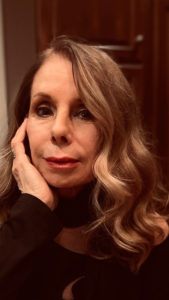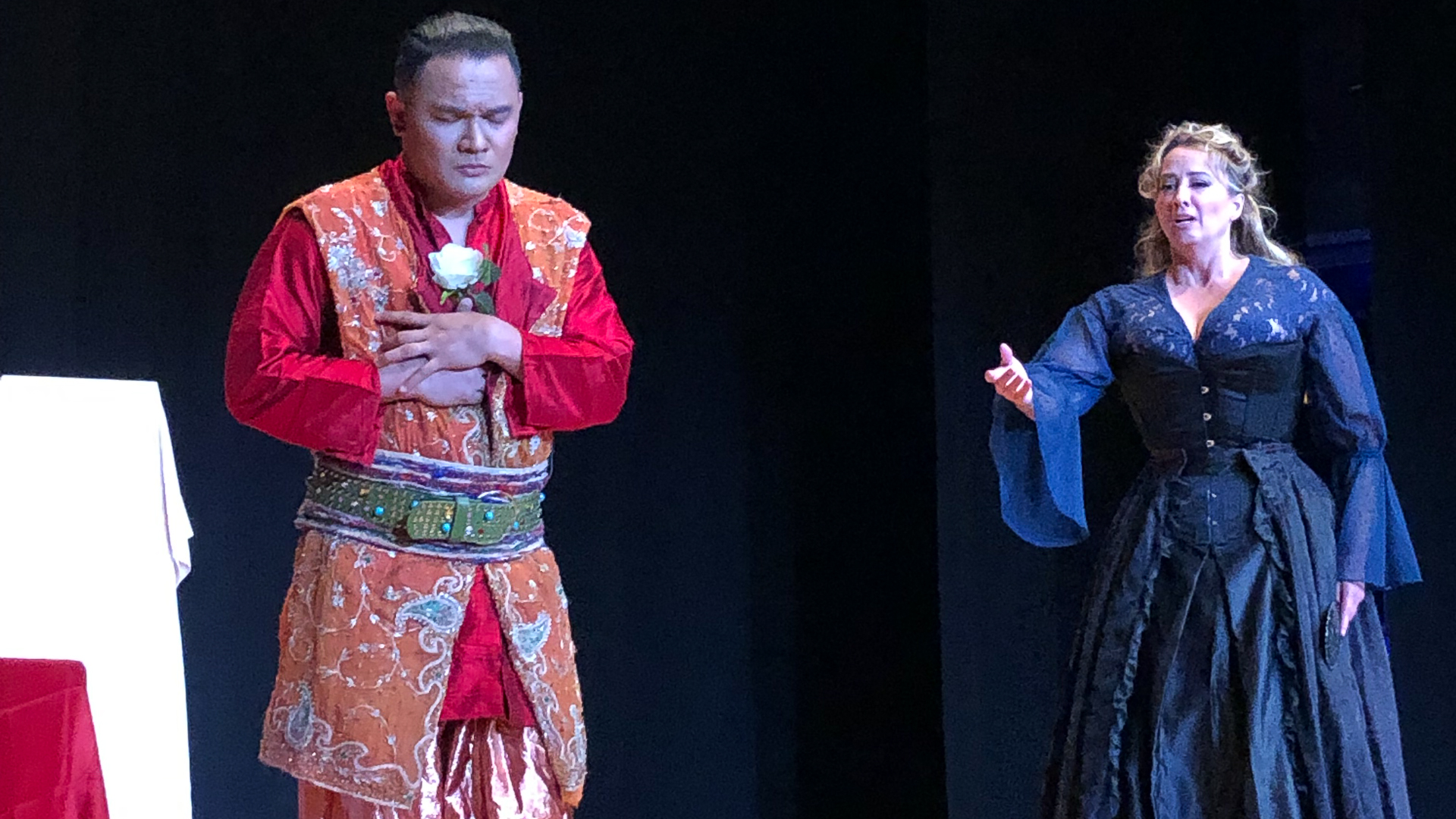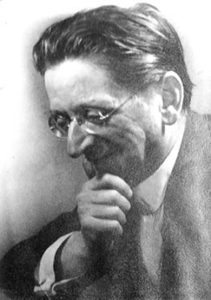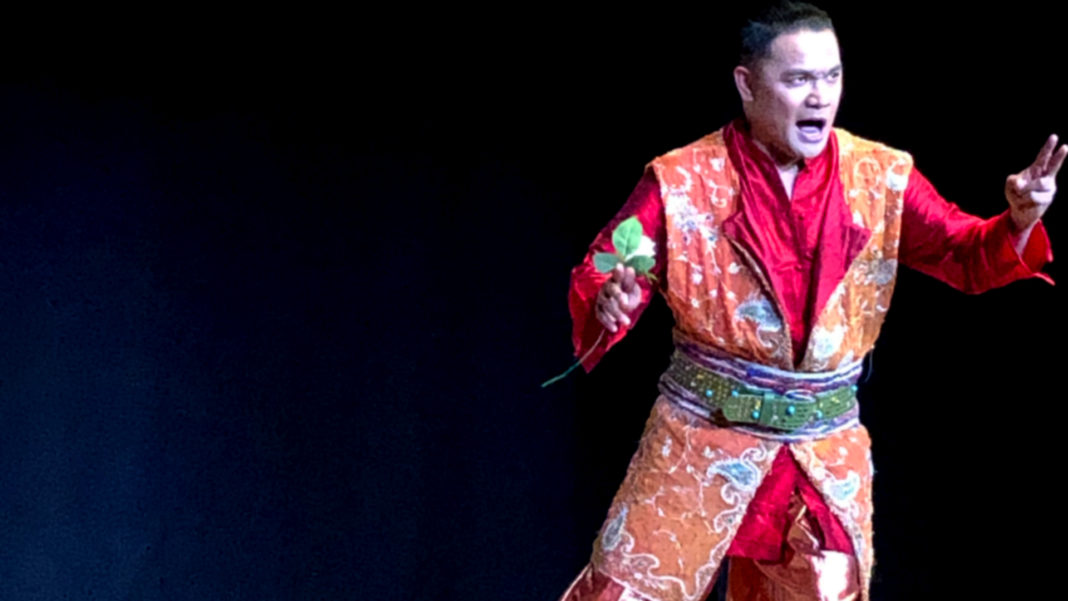If we strictly use opera as a way of gauging the cultural wealth of a city, then Los Angeles is doing quite well indeed. Of course we have LA Opera, there is Yuval Sharon’s The Industry, Long Beach Opera and also Josh Shaw with the Pacific Opera Project. Joining this field is Numi Opera, a company dedicated to presenting operas by composers you may know, but whose works haven’t entered in the repertoire in a significant way.

Gail Gordon, Numi Opera’s Founding Director also wants to put an emphasis on Lost Voices, operas that were suppressed during World War II by the Third Reich. The inaugural season launches on Thursday with a production of Alexander Von Zemlinsky’s Der Zwerg. There is a second performance on Sunday and both take place at the Theatre at the Ace Hotel.
This is not Gordon’s first time producing opera. She created Opera Nova in 2000. In 2008 she lead Santa Monica College Opera Theatre. She was also instrumental in the West Coast Premiere of Tobias Picker’s An American Tragedy.
Der Zwerg is based on a story by Oscar Wilde called The Birthday of the Infanta. Zemlinsky used that as the inspiration to tell the story of a dwarf who is unaware of his grotesque appearance until he is given as a gift to a woman with whom he is smitten, but she wants nothing to do with the dwarf. The cast for Numi Opera’s production features Rodell Rosel, Shana Blake Hill, Oriana Falla and Roberto Perlas Gomez. Christopher Luthi is the Musical Director.
We spoke with Gordon, who is directing Der Zwerg, about the challenges of establishing a new opera company in a city rich with them, why she chose Der Zwerg to launch Numi Opera and the challenges of doing it herself.
How difficult is it to launch a new opera company in Los Angeles?
I have never heard so many “no’s” in my life. I worked with a wonderful grant writer. She got me started. Because I was new they needed a three-year footprint before they were comfortable. When I heard back it wasn’t that they didn’t feel the subject was worthy, but as a new company I didn’t have a footprint. Aside from the money my husband I have raised, it is going to cost me a little chunk of change.
Los Angeles has a robust opera scene. What did you see was missing from the local opera scene that prompted the formation of Numi Opera?
It was not necessarily related to what is or is not here in Los Angeles. In all fairness I did not even think about how I would fit into the landscape. It was just something that I felt I needed to do as a person of Jewish extraction. When I did see Der Zwerg at LA Opera I had one of those visceral reactions. Zemlinsky hit me head on. He was the first one I wanted to perform. I think his music is magnificent. It has many emotions in it.
[LA Opera had a series called Recovered Voices that launched in 2007. It was a passion project for James Conlon. In 2008, they performed Der Zwerg.]

Given James Conlon’s passion for this material and particularly music silenced by the Nazis, did you have any conversations with him about your plans?
I told him I was going to do this opera and it was his baby. I wanted his blessing. He said, “Where are you performing?” I told him the Theatre at the Ace Hotel. I briefly told him my mother was a Polish immigrant and the rest of my family went into hiding for five years. These composers and this music really speaks to me. I lost so much family during the war. He was lovely about it. He got excited.
Zemlinsky described himself as hideous. He also had a failed relationship with Alma Schindler who married Gustav Mahler within months of breaking off her relationship with Zemlinsky. How much do we think this relationship inspired the composer’s interest in the Oscar Wilde story?
I think 100%. Zemlinsky felt this was quasi-autobiographical and he said so himself in some papers I read where he wrote about his heartbreak with Alma and how he felt he was always an ugly little man. His relationship to the dwarf was autobiographical. He felt it was him. Emotionally he was distraught.
There must have been something appealing about Zemlinsky?

If you think in terms of the most brilliant person you know, regardless of what they look like, the brilliance of the brain is attractive. He was the finest conductor and teacher at the time. He was the one everybody went to to learn composition. He had so many facets to him that being five-foot-tall and very thin with a very large nose paired in comparison to his other capabilities.
Your second production in December is Erich Wolfgang Korngold’s Der Ring Des Polykrates. Korngold was a student of Zemlinsky’s. Is it possible to hear the influence of the teacher on the student from one work to the other?
Korngold was 17. This was his first opera. In Der Ring Des Polykrates you’ll hear much more lyric statements. It doesn’t quite have the emotional depth that Zemlinsky did, who was 24. Between 24 and 17 is a lifetime of differences, particularly in that time of the world. It doesn’t ever really go down in the darkness the way Der Zwerg does. But when you hear some of these beautiful lines the dwarf sings, you’ll hear similarities in the writing.
Nellie Melba, an Australian operatic soprano in the late Victorian era and early 20th century said, “The first rule in opera is the first rule in life: see to everything yourself.” Do you agree with her and how does that statement reflect your starting of Numi Opera?
Yes I do. I’m at a point where I’m trying to learn – the word is delegate. I have visions about things and how they should be. Fortunately for me, I’m surrounded by people who believe in what I see and what I feel. That’s very helpful. I think it is true. I think you have to see it, feel it and be it before you can produce it.
For tickets on Thursday go here.
For tickets on Sunday go here.
All photographs courtesy of Numi Opera.
Update: Gail Gordon’s name has been changed to correct the previously listed Gale Gordon. Cultural Attaché apologies for the error.










